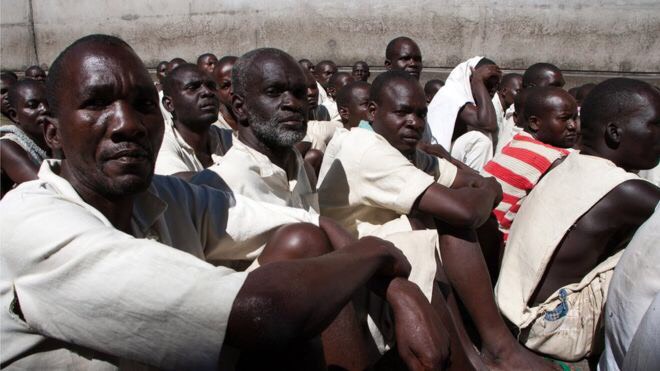- About
- Topics
- Picks
- Audio
- Story
- In-Depth
- Opinion
- News
- Donate
- Signup for our newsletterOur Editors' Best Picks.Send
Read, Debate: Engage.
| June 25, 2018 | |
|---|---|
| topic: | Death Penalty |
| tags: | #Robert Mugabe, #Zimbabwe, #death penalty |
| located: | Zimbabwe |
| by: | Cyril Zenda |
According to a survey conducted by international criminologist, Dr Mai Sato, in collaboration with the Mass Public Opinion Institute, most Zimbabweans would be happy to see the abolition of capital punishment.
“There appeared to be broad political agreement that abolition was desirable and achievable in the short term,” the researchers pointed in a summary of the survey whose results were published at the end of May.
The survey was commissioned by The Death Penalty Project in partnership with Veritas, a local legal and legislative watchdog that, for many years, has been campaigning for the abolition of capital punishment in Zimbabwe.
The survey results showed that most Zimbabweans would want the country to do away with capital punishment, which former President Robert Mugabe favoured. His detractors accused Mugabe of using capital punishment as a handy weapon to cow political opponents.
Mugabe and his supporters opposed previous efforts to completely abolish capital punishment resulting in the country’s 2013 constitution that only exempts women and males below 18 and over 70 years old from being sent to the gallows.
According to the research findings, while on the surface a majority of Zimbabweans support the death penalty, this support is not particularly strong, and where it exists, it is qualified. Only 41% thought that Zimbabwe should “definitely” keep the death penalty.
“Most Zimbabweans accepted that there should be strict limits on capital punishment and were reluctant to impose the death penalty when presented with different case scenarios. Ultimately, 83% of those in favour of the death penalty would be willing to accept abolition if it becomes government policy,” the researchers pointed out.
“When exploring the reasons behind the support for the death penalty, it was striking that the “eye for an eye” argument did not hold much traction with the Zimbabwean public. Only 14% of retentionists supported the death penalty for retributive reasons. Nor did the public think that the death penalty was an effective criminal justice policy, with 92% of the Zimbabweans favouring policies other than “more executions” for reducing violent crime rates.
Veritas, together with other human rights organisations such as Amnesty International and the Zimbabwe Human Rights NGO Forum, has always campaigned for abolition and indications are that Zimbabwe – which has not carried out any executions since 2005 – is set to join the comity of nations that have abolished the death penalty. Although Zimbabwe continues to retain the death penalty, there has been progress towards abolition. An unofficial moratorium on executions has been in force for 13 years and the 2013 new constitution allows judges discretion on the imposition of the death penalty. When Mugabe was toppled in a coup in November last year, he was in the process of recruiting a hangman in readiness to resume executions.
The human rights groups, that also include local traditional chiefs, are hopeful that the country’s new president, Emmerson Mnangagwa – himself an abolitionist – would take no time to end what he has repeatedly described as “a flagrant violation of the right to life and dignity.”
Over the years Mnangagwa clashed with his former boss, Mugabe, over the issue. Mnangagwa himself a former convict, narrowly escaped the hangman’s noose in the 1960s on the technicality that he was below 21 years when his colleagues were hanged after they were caught while on a terrorist mission to sabotage infrastructure as they fought against white colonial rule in Rhodesia.
In March Mnangagwa commuted the death sentences of some death roll prisoners to life in prison.
By copying the embed code below, you agree to adhere to our republishing guidelines.
